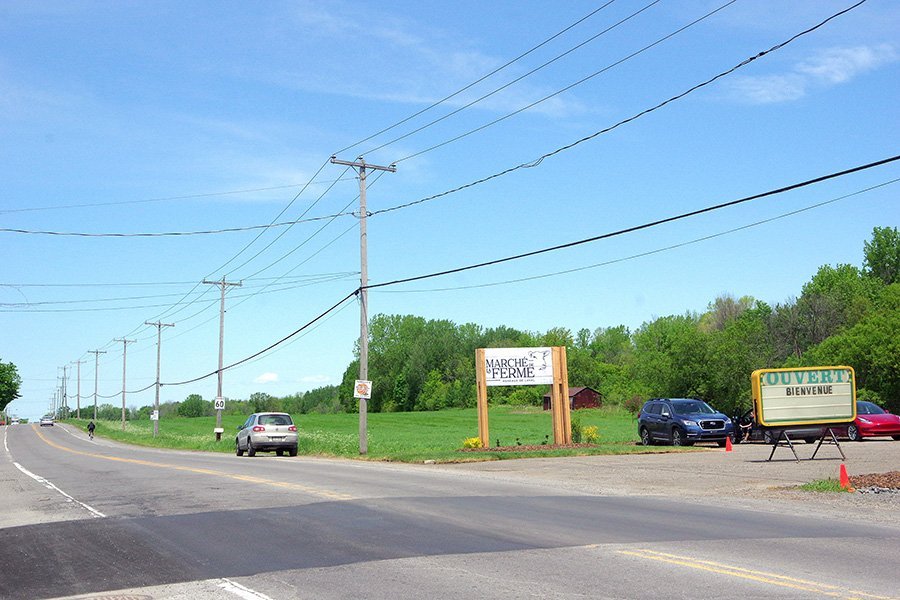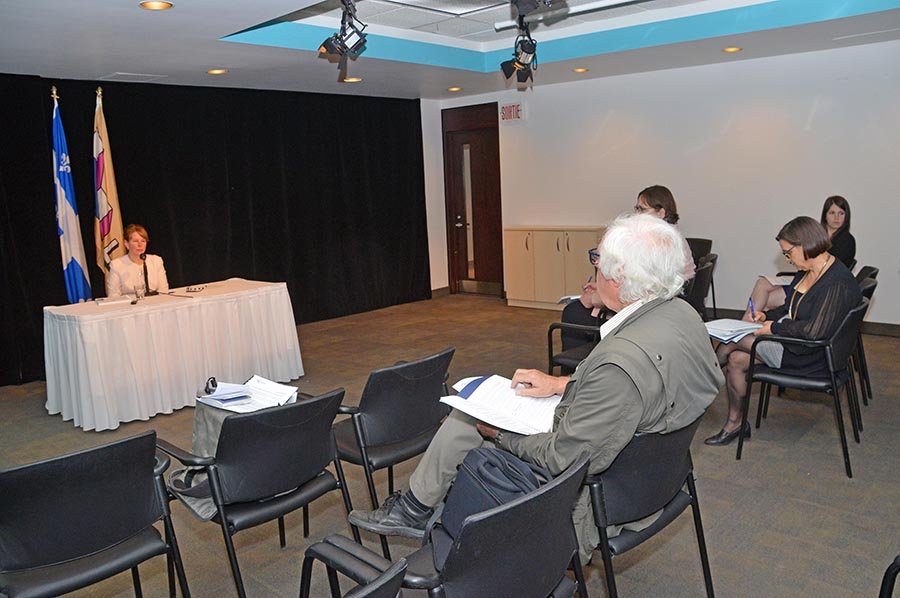
Martin C. Barry
In a report on the City of Laval’s management performance that is politely restrained despite its criticism, Laval auditor-general Véronique Boily raises questions about the Demers administration’s continuing failure to protect Laval’s once vast agricultural lands – some of which have been snapped up in recent years by development speculators, adds Boily.
City falls behind
In a statement issued when the report was tabled last week, Boily’s department noted that in 2016 the city adopted its first Agricultural Zone Development Plan (PDZA) for the period up to 2020. However, the city didn’t bother to measure the increase in the area of cultivated land, whose target set by the plan is 10 per cent.
In addition, she added, the city “has not taken the steps needed to acquire regulatory tools to prevent the spread of fallow land and restore it for agricultural purposes.”
Developers in the wings
In an executive summary of the 186-page report, Boily points out that Laval’s agricultural lands are located squarely in the middle of a vast market for farm products in the greater Montreal region. Even so, the City of Laval appears to be ignoring this.
While noting that Laval hasn’t bothered since adoption of the PDZA to inventory the rise and fall in the number of agricultural properties being cultivated or lying fallow, Boily suggested that land acquisitions made by property developers “can have important consequences” on attaining the goal set out in the PDZA.

Non-agricultural ‘speculators’
According to Boily, in 2012 alone more than 84 hectares of land zoned agricultural in Laval were purchased “with the possible aim of speculation by businesses whose activities have nothing to do with the agricultural sector.” As well, she added, in 2018 at least 62 hectares of agricultural lands were acquired by two buyers “who were not agricultural entrepreneurs.”
The report comes in the wake of some renewed concern among agriculturalists in Laval about the city’s neglect of the farming sector.
Farmers critical of city
Among those who raised the issue recently was Gilles Lacroix, a Laval-area farmer who spoke during a public consultation on May 21 on the ongoing development of Laval’s master urban plan.
“You talk about protecting the agricultural territory,” said Lacroix, noting that the city has failed to turn its words into action and isn’t providing any incentive to keep agricultural land owners from abandoning their properties.
After presenting her report to journalists at Laval city hall, Boily was asked by The Laval News to elaborate on her comments about the involvement of development speculators in the purchase of agricultural lands.
Land’s being bought, says Boily
While pointing out that the status of Laval’s agriculturally-zoned areas is officially protected and that this effectively should prevent them from being used for any other means, she said nothing stands in the way of development speculators purchasing farm lands.
“These lands get purchased,” she said. “On the other hand, they cannot use them for purposes other than what is provided for in the law.”
But the question remains: Why would property developers, who have converted vast tracts of Laval’s more than 95-square-mile territory from a once rural landscape to one that has gradually been urbanized, want to acquire agricultural land if the law says they can’t use it for anything other than farming?

De-zoning possible, says expert
Among those present during the presentation of the auditor-general’s report was Guy Debailleul, a University of Laval associate-professor of agricultural economics and co-president of the Institut Jean-Garon which conducts research on the use of agricultural territories.
While agreeing that generally speaking provincial law ensures that the status of agriculturally-zoned land can’t be changed, he suggested applications for de-zoning can be made to remove the protected status from certain portions of agricultural territory.
“There can be requests made to the Commission de protection du territoire agricole, which has a quasi-legal status of sorts, and individuals or municipalities may ask for modifications in the zoning for particular purposes,” Debailleul said.
De-zoning farm land now rare
He noted that de-zoning protected agricultural land has been done more commonly for autoroute construction, for example, but in exceptional cases also for residential development – although much more rarely.
According to former Fabreville city councillor Michel Trottier who leads the Parti Laval, de-zoning of farm land in Laval was fairly common under the administration of former mayor Gilles Vaillancourt, whose discredited governance ended in 2012. Trottier said the practice came to a halt the following year with the election of the Demers administration.
De-zoning ‘impossible,’ says Trottier
While acknowledging that applications for de-zoning can be made to the provincial commission, he said the buck would stop here in Laval because of the protected status accorded in Laval’s master urban plan by the city.
As for the property developers who’ve purchased land in the protected agricultural areas, Trottier suggested the acquisitions were made before the law came into effect. “It would be impossible to de-zone as things are now,” Trottier insisted.














